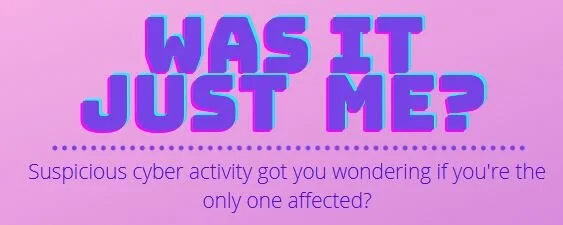protect YOUR DIGITAL PRIVATES.
A lot of recent cases I’m working on include individuals hyper sensitive to the spam emails, texts and calls they receive. Because there is a general lack for an individual, personalized privacy experience for an average netizen, some may not realize when they are part of a much larger group receiving emails.
Our devices are integrated into our daily lives, from the moment we wake up to the moment we go to sleep. We regularly input tons of personal data and sync this data across various accounts to include financial, business, and social.
Here is a list of steps you can take to ensure that your Android device's intimate data points are being used how and when you want them to be used.
If you want to learn more about security from a professional, don’t use bad passwords. It’s a giveaway that you don’t care. Here are some steps to show you do.
“Threat Modeling” is a commonly used term in cyber to discuss how to protect yourself from attackers. Let’s focus on that for you - but first. Who is your bad guy - and what are you protecting them from?
Who are you most concerned want your while you’re protesting?
Once you’ve answered that question, we can talk more about ways to better protect yourself.
We’ll also answer questions like “Should you buy a Faraday bag?” and “How else could I be seen digitally at a protest?”
VPNs are growing in popularity - as they should be! But tools, services and privacy policies behind these Virtual Private Network services are ever-changing. Know our quick 2020 recommendations and find some new tools for your VPN research.
Did you ever Google yourself or a friend, foe or family member and find an address immediately? That information appeared because your address is a public record, and it’s one the most benign parts about you that’s considered a public record.
More information about you is a public record than you might realize. Use these steps to take that information offline.
Don’t expect to turn into an off-the-grid privacy guru in a week! If you follow these basic privacy concepts over time, you will become more conscious of the data you give away to data brokers and malicious actors.
Browser addons can sometimes protect you. Sometimes, they still steal your data. One YouTube blocker demonstrates how addon updates can betray your trust and act maliciously without you knowing.
Everyone hates passwords and nobody is good at it. We all know what we should do, but putting that into practice is obnoxious. Here are some tools to help keep your passwords safe, and why you should still care about strong passwords.










